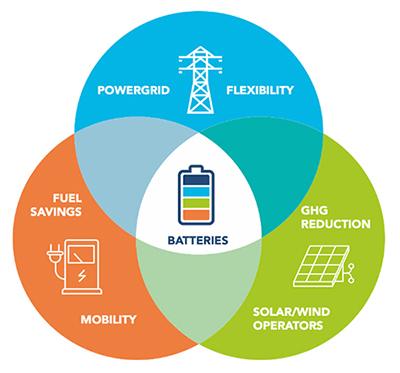Convergence Energy Services Limited (CESL), a wholly-owned subsidiary of Energy Efficiency Services Limited (EESL) under the Ministry of Power, has announced plans to set up 810 electric vehicle (EV) charging stations across 16 highways and expressways in India.
The EV charging stations will be set up on highways and expressways connecting major cities, such as Delhi-Agra, Mumbai-Pune, Ahmedabad-Vadodara, and Hyderabad-ORR. The charging stations will be spaced every 25-100 kilometers, depending on the traffic density on the route.
CESL will be setting up the EV charging stations in partnership with private companies. The company has already floated tenders for the selection of partners. The EV charging stations are expected to be operational within 6-8 months.
The setting up of 810 EV charging stations across 16 highways and expressways in India is a significant development. It will help to address the challenge of range anxiety, which is one of the major barriers to the adoption of EVs. The new EV charging stations will make it easier for EV owners to travel long distances without having to worry about running out of charge.
Benefits of the CESL EV charging station project
The CESL EV charging station project is expected to have a number of benefits, including:
- Accelerated adoption of EVs: The increased availability of EV charging stations will make it easier for people to switch to electric vehicles. This will help to accelerate the adoption of EVs in India.
- Reduced air pollution: EVs produce zero emissions, so the new EV charging stations are expected to help reduce air pollution in India. Air pollution is a major public health concern in the country, and the new EV charging stations can play a significant role in improving air quality.
- Improved public health: Air pollution is a major cause of respiratory and other health problems. The new EV charging stations are expected to improve public health by reducing air pollution.
- Reduced greenhouse gas emissions: EVs produce zero greenhouse gas emissions, which contribute to climate change. The new EV charging stations are expected to reduce greenhouse gas emissions from the transportation sector in India.
- Job creation: The CESL EV charging station project is expected to create thousands of jobs in India. This will boost the economy and create new opportunities for job seekers.
Challenges
The CESL EV charging station project will face some challenges, including:
- Cost: Setting up EV charging stations is expensive. CESL will need to attract investment from the private sector to fund the project.
- Infrastructure: India needs more EV charging stations and other related infrastructure to support the growth of EVs. The government and the private sector will need to invest in developing the necessary infrastructure.
- Awareness: Many people in India are not yet aware of the benefits of EVs. CESL will need to raise awareness of EVs and their benefits in order to promote their adoption.
Conclusion
The CESL EV charging station project is a welcome development. It is expected to have a number of benefits, including accelerated adoption of EVs, reduced air pollution, improved public health, reduced greenhouse gas emissions, and job creation.
CESL will need to address the challenges of cost, infrastructure, and awareness in order to make the project successful. However, with the right support, the project has the potential to make a significant impact on the adoption of EVs in India.
Additional thoughts
The CESL EV charging station project is one of the most ambitious EV charging infrastructure projects in India. It is a sign of the government's commitment to promote the adoption of EVs and reduce air pollution.
The success of the CESL EV charging station project will have a positive impact on the Indian economy and environment. The project will help to reduce India's dependence on imported oil and make the country more energy self-sufficient. The project will also help to reduce air pollution and improve public health in India.
The CESL EV charging station project is a positive step towards a more sustainable future for transportation in India.






